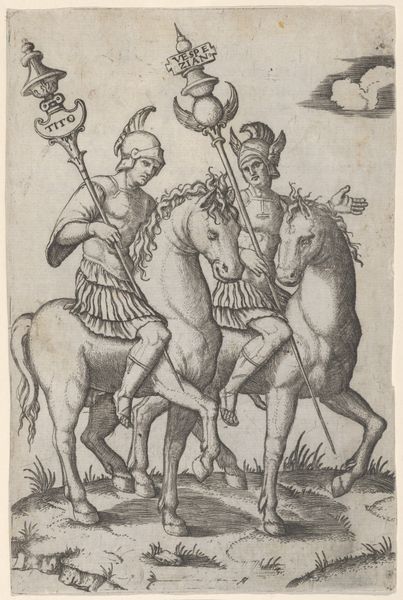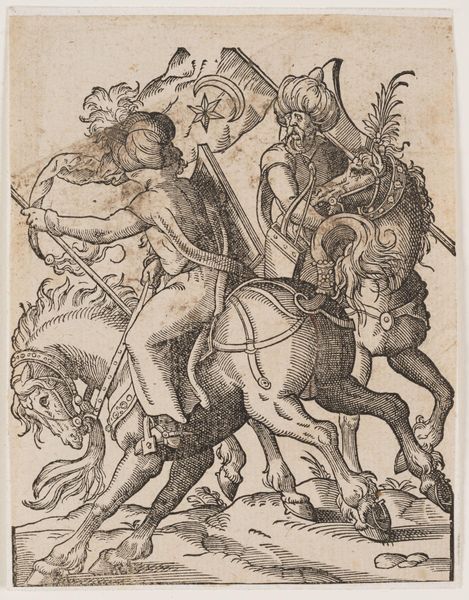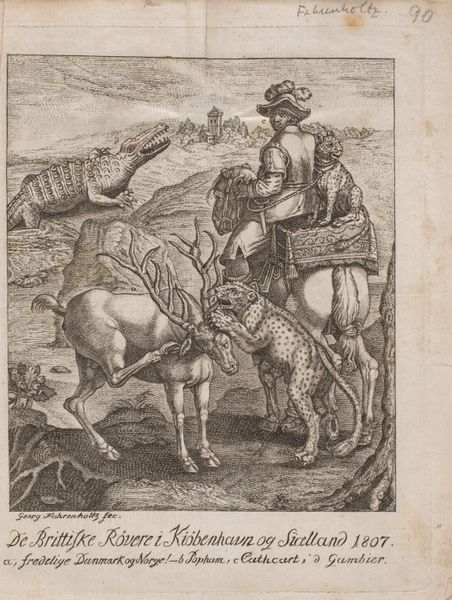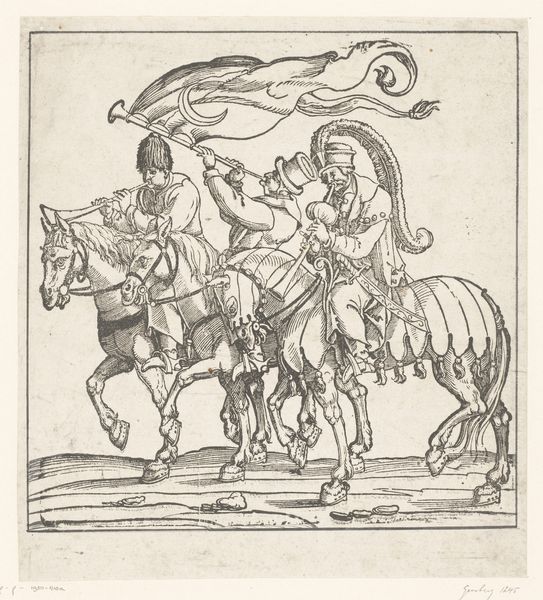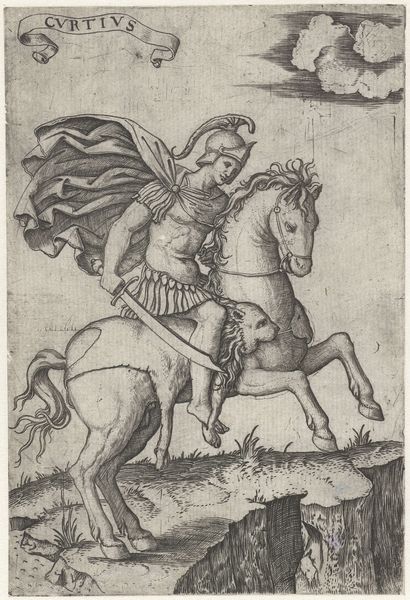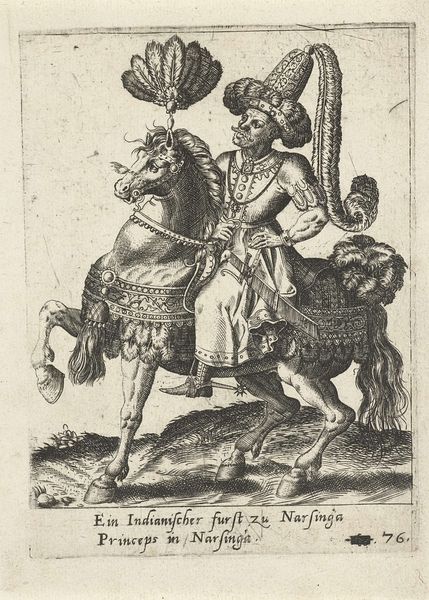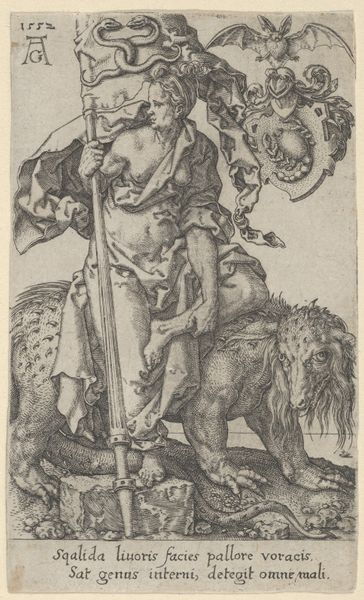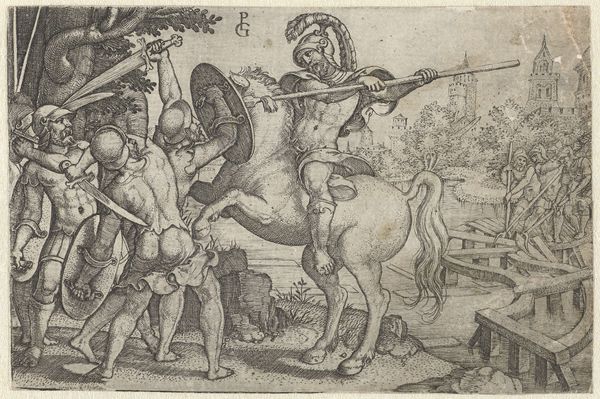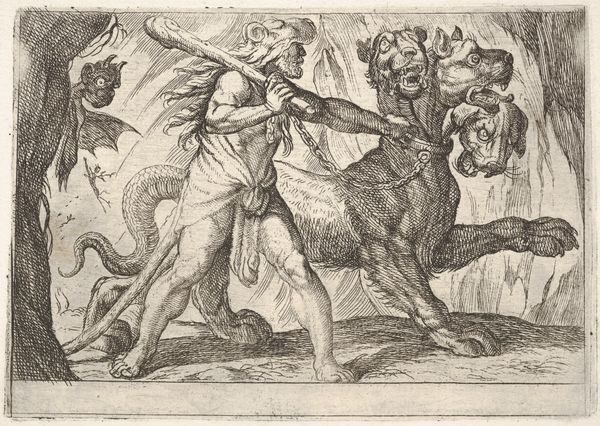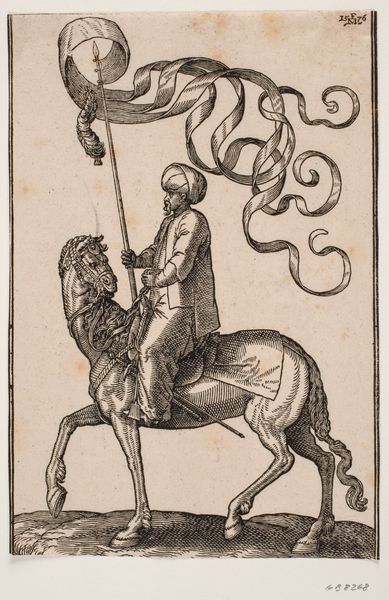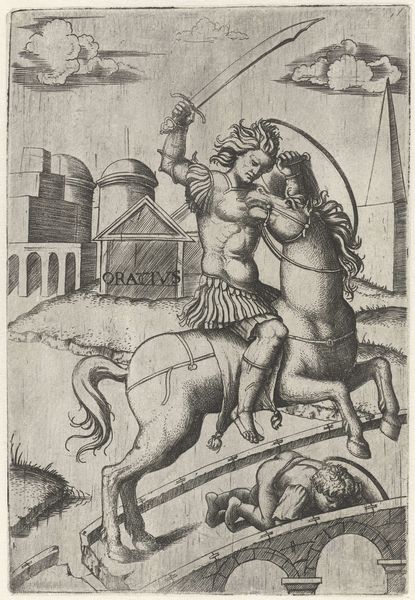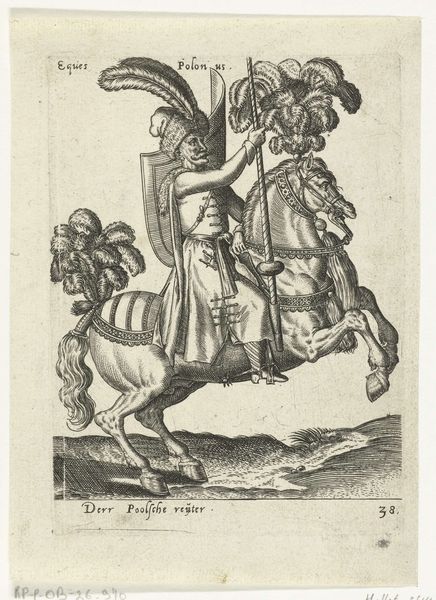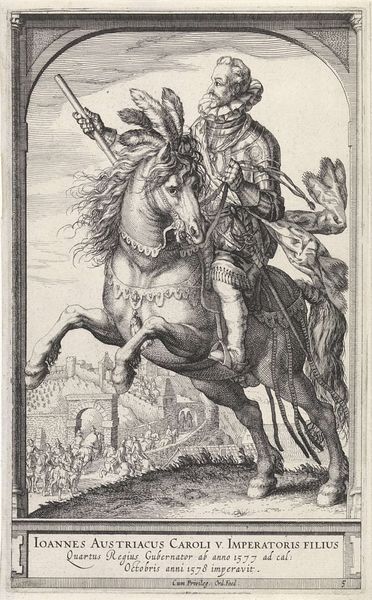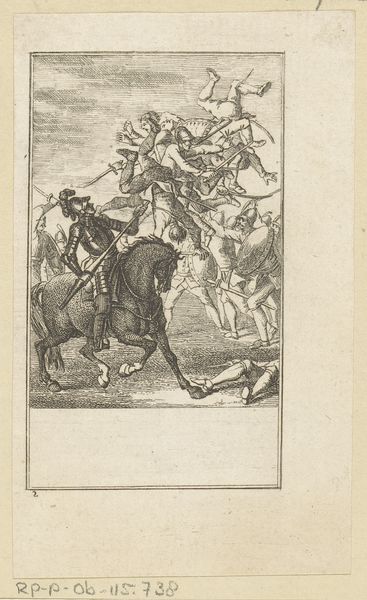
Scipio Africanus on horseback preceeded by a foot soldier holding a standard 1495 - 1539
0:00
0:00
drawing, print, etching, engraving
#
portrait
#
drawing
# print
#
etching
#
landscape
#
figuration
#
11_renaissance
#
soldier
#
pen-ink sketch
#
horse
#
men
#
history-painting
#
italian-renaissance
#
engraving
Dimensions: Sheet: 6 11/16 × 4 3/4 in. (17 × 12 cm)
Copyright: Public Domain
This print of Scipio Africanus on horseback, made by Marcantonio Raimondi around 1520, is made from lines etched into a metal plate, probably copper. This process, called engraving, allowed for the relatively easy production of multiple images. The visual effect imitates drawing, but its character comes from the burin, the tool used to cut lines into the plate. Raimondi was a virtuoso of this medium, and his prints were widely disseminated. They served an important purpose in spreading the style of Renaissance masters like Raphael, whose designs Raimondi often translated. Engraving like this was a decidedly commercial activity, a form of industrial image-making. It allowed workshops to create a kind of assembly line, producing works of art for a growing market. It’s important to remember, therefore, that the circulation of images like these were a vital part of the economy of the Renaissance, and indeed helped to create the very idea of "art" as something that could be bought and sold. By paying attention to these methods, we can learn to look at older works of art in entirely new ways.
Comments
No comments
Be the first to comment and join the conversation on the ultimate creative platform.
